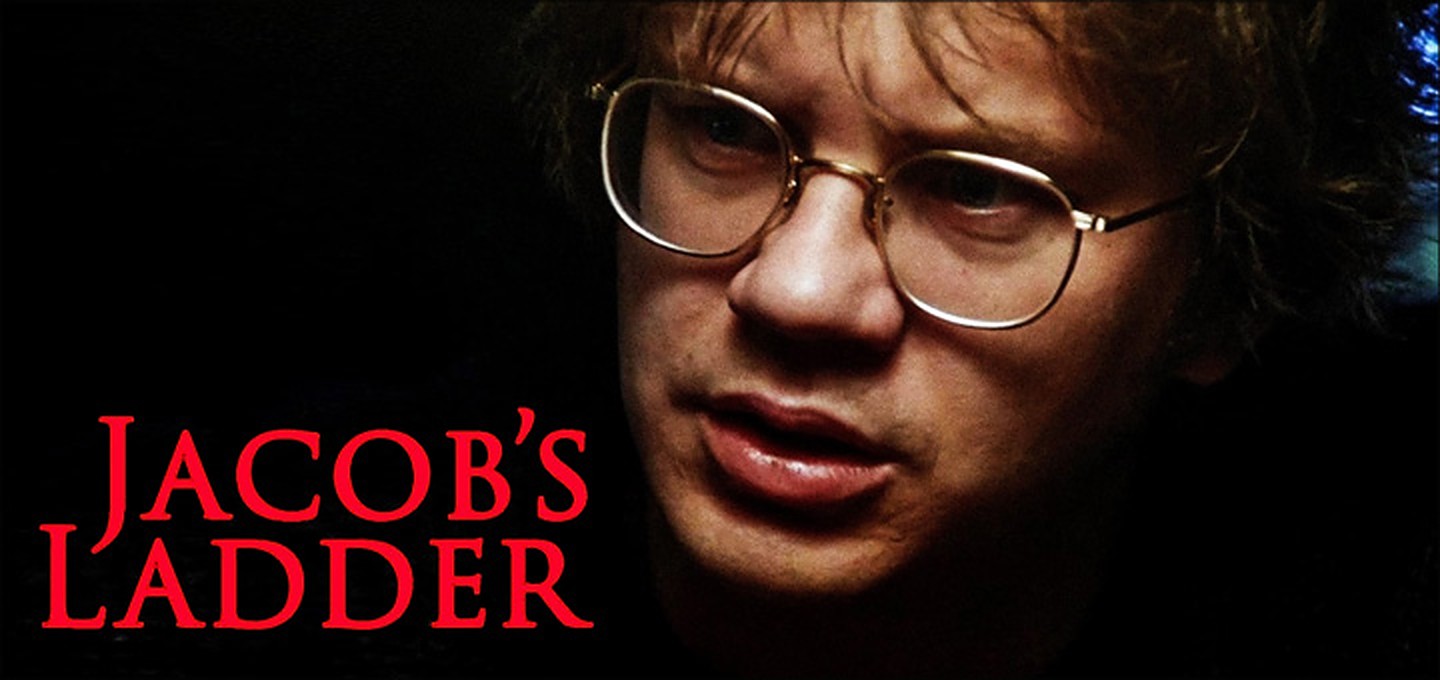
Are you a fan of psychological thrillers? If so, then you must have heard about the iconic movie, Jacob’s Ladder. Released in 1990, this gripping film directed by Adrian Lyne has become a cult classic in the genre. Jacob’s Ladder follows the haunting journey of Jacob Singer, a Vietnam War veteran, as he navigates through a nightmarish reality filled with hallucinations and disturbing visions. With its thought-provoking storyline and stellar performances, this movie has captivated audiences and left them questioning their own perceptions of reality. In this article, we will delve into 35 fascinating facts about Jacob’s Ladder that will give you a deeper understanding of this cinematic masterpiece.
Key Takeaways:
- “Jacob’s Ladder” is a psychological horror film that explores the blurred lines between reality and the supernatural, captivating audiences with its thought-provoking narrative and memorable performances.
- The movie’s enduring appeal lies in its ability to resonate with viewers on a deep and visceral level, challenging them to confront their own fears and existential dilemmas.
Jacob’s Ladder is a psychological horror film directed by Adrian Lyne.
Released in 1990, this gripping thriller follows the story of Jacob Singer (played by Tim Robbins) as he tries to unravel the mysterious and disturbing events that haunt his life.
The movie takes its name from the Bible story of Jacob’s Ladder, which symbolizes the connection between heaven and earth.
This biblical reference sets the tone for the movie’s exploration of the blurred lines between reality and the supernatural.
Jacob’s Ladder was inspired by the short story “An Occurrence at Owl Creek Bridge” by Ambrose Bierce.
The story’s themes of war, trauma, and the unreliability of memory are translated onto the big screen in a haunting and thought-provoking manner.
The film’s screenplay was written by Bruce Joel Rubin, who also penned the script for the critically acclaimed film Ghost.
Rubin’s expertise in crafting stories with supernatural elements is evident in Jacob’s Ladder, as the boundaries between reality and nightmare blur.
Jacob’s Ladder was initially met with mixed reviews upon its release, but has since gained a cult following and recognition for its psychological depth.
The movie’s ambiguous ending and thought-provoking themes have sparked countless discussions and interpretations among fans.
Tim Robbins delivers a powerful performance as Jacob Singer, a Vietnam War veteran struggling with his sanity.
Robbins portrays the character’s fear, confusion, and inner turmoil with incredible depth, adding to the film’s overall impact.
The movie features a talented ensemble cast including Elizabeth Peña, Danny Aiello, and Pruitt Taylor Vince.
Their performances contribute to the film’s eerie atmosphere and enhance the sense of unease throughout the narrative.
The film’s iconic visuals, including distorted imagery and disorienting camera angles, contribute to the audience’s sense of unease and confusion.
These stylistic choices help create a nightmarish atmosphere that perfectly complements the psychological themes of the movie.
The score of Jacob’s Ladder, composed by Maurice Jarre, effectively adds to the film’s suspense and tension.
The haunting melodies and eerie soundscape further immerse viewers into Jacob’s descent into madness.
Jacob’s Ladder explores themes of post-traumatic stress disorder (PTSD) and the psychological toll of war.
The movie delves into the psychological and emotional aftermath of the Vietnam War, shedding light on the lasting effects of combat trauma.
The film’s narrative is structured as a series of hallucinations, flashbacks, and surreal sequences.
This fragmented storytelling style reflects Jacob’s fractured mental state and keeps the audience guessing about what is real and what is imagined.
Jacob’s Ladder incorporates elements of psychological horror, supernatural thriller, and existential drama.
The blending of genres creates a unique viewing experience that is both unsettling and thought-provoking.
The movie explores the concept of purgatory, presenting it as a state of psychological torment and unresolved trauma.
This existential theme adds another layer of depth to the film’s exploration of Jacob’s journey towards redemption and self-discovery.
The film’s twist ending is subject to interpretation, leaving viewers to question the true nature of Jacob’s experiences.
This ambiguity contributes to the movie’s enduring appeal and encourages multiple viewings to uncover hidden meanings and clues.
Jacob’s Ladder has inspired numerous filmmakers and artists, due to its innovative storytelling techniques and exploration of the human psyche.
Its influence can be seen in subsequent psychological horror films and works that delve into the themes of trauma, memory, and identity.
The movie’s release was delayed due to legal disputes and financial difficulties faced by the production company.
Despite these setbacks, Jacob’s Ladder eventually found its audience and cemented itself as a cult classic.
The success of Jacob’s Ladder led to Hollywood’s renewed interest in psychological horror films in the early 1990s.
The movie opened the doors for other acclaimed films in the genre, such as The Sixth Sense and Donnie Darko.
Jacob’s Ladder received an Academy Award nomination for Best Visual Effects, showcasing the technical achievements of the film.
The stunning visual effects contribute to the movie’s immersive and disorienting atmosphere.
The movie’s themes of guilt, redemption, and the search for meaning resonate with audiences on a profound level.
Jacob’s struggle to make sense of his experiences mirrors the universal human quest for understanding and inner peace.
Jacob’s Ladder is often praised for its intelligent and thought-provoking script, which explores complex philosophical concepts in a gripping manner.
The movie’s screenplay challenges viewers to question the nature of reality and confront their own fears and existential dilemmas.
The film’s title, Jacob’s Ladder, is a metaphorical reference to the characters’ ascent towards self-discovery and spiritual enlightenment.
This symbolism adds depth to the movie’s exploration of identity and the search for personal redemption.
Jacob’s Ladder combines visceral and psychological horror, creating a chilling and unforgettable viewing experience.
The film’s ability to evoke fear and provoke introspection sets it apart from conventional horror movies.
The movie’s production design effectively captures the gritty and surreal atmosphere of 1970s New York City.
The dark and decaying urban landscapes further enhance the sense of unease and isolation experienced by the characters.
Jacob’s Ladder is known for its masterful use of sound design, incorporating eerie sound effects and unsettling ambient noises.
These auditory elements heighten the tension and contribute to the movie’s overall sense of dread.
The film tackles heavy subjects such as guilt, mortality, and the nature of evil, making it a thought-provoking and emotionally resonant viewing experience.
Jacob’s journey serves as a metaphorical exploration of these universal themes, providing ample material for analysis and discussion.
Jacob’s Ladder draws inspiration from various sources, including art, literature, and mythology, further enriching its narrative and symbolism.
The movie’s references to Dante’s Inferno and Hieronymus Bosch’s painting “The Garden of Earthly Delights” add layers of meaning to the story.
The film’s nonlinear storytelling mirrors the fractured nature of memory and the human psyche.
Jacob’s journey through time and space adds to the disorienting and nightmarish quality of the movie.
Jacob’s Ladder serves as a cautionary tale about the dangers of denying and repressing one’s traumatic past.
The film highlights the importance of confronting and processing unresolved trauma in order to achieve inner healing and peace.
The movie’s editing, with its quick cuts and surreal transitions, adds to the sense of disorientation and unease.
These innovative editing techniques contribute to the film’s overall impact and contribute to its status as a psychological thriller.
Jacob’s Ladder features powerful and emotionally charged scenes that linger in the minds of viewers long after the credits roll.
The film’s ability to evoke strong emotional responses is a testament to its compelling storytelling and excellent performances.
The movie’s exploration of the blurred lines between the conscious and subconscious mind challenges viewers to question their own perceptions and experiences.
Jacob’s journey becomes a mirror through which audiences can reflect on their own inner struggles and existential dilemmas.
The lasting impact of Jacob’s Ladder can be seen in its influence on subsequent psychological horror movies, as well as its enduring cult status.
The film’s themes, visual style, and narrative approach continue to inspire filmmakers and captivate audiences to this day.
Jacob’s Ladder was remade in 2019, featuring a reimagined storyline and an updated visual aesthetic.
While the remake received mixed reviews, it further solidifies the original film’s status as a timeless and influential piece of cinema.
The legacy of Jacob’s Ladder extends beyond the silver screen, influencing various forms of media, including video games, music, and literature.
Its impact on popular culture demonstrates the enduring fascination with its themes of the mind, memory, and the human condition.
The movie’s enduring appeal lies in its ability to resonate with viewers on a deep and visceral level, challenging them to confront their own fears and existential dilemmas.
Jacob’s Ladder continues to captivate audiences with its thought-provoking narrative, memorable performances, and its exploration of the human psyche.
Conclusion
After diving into the intriguing world of the movie “Jacob’s Ladder,” it’s clear that this psychological thriller has captivated audiences for decades. From its thought-provoking storyline and stunning performances to its unique visual style and haunting atmosphere, the film continues to leave a lasting impact on viewers.With its intricate narrative and layered symbolism, “Jacob’s Ladder” explores themes of trauma, perception, and the thin line between reality and illusion. The talented cast, led by Tim Robbins, delivers exceptional performances that add depth and emotion to the characters.As one of the most iconic films of its genre, “Jacob’s Ladder” continues to be celebrated for its artistic vision and psychological intrigue. Whether you’re a fan of psychological thrillers or simply appreciate thought-provoking storytelling, this movie is definitely worth a watch.
FAQs
1. Is “Jacob’s Ladder” based on a true story?
No, “Jacob’s Ladder” is a work of fiction. However, the film does draw inspiration from various psychological and philosophical concepts.
2. Can you explain the ending of the movie?
The ending of “Jacob’s Ladder” is open to interpretation. Some viewers believe that it implies Jacob’s death and his journey to the afterlife, while others interpret it as a metaphorical representation of Jacob finally finding peace and acceptance.
3. Is “Jacob’s Ladder” a horror movie?
While “Jacob’s Ladder” has elements of horror, it is primarily categorized as a psychological thriller. It deals with unsettling and intense themes, but it also delves into deeper psychological and philosophical concepts.
4. Is there a remake or sequel of “Jacob’s Ladder”?
A remake of “Jacob’s Ladder” was released in 2019, directed by David M. Rosenthal. However, it received mixed reviews and is not considered as iconic as the original.
5. Who directed “Jacob’s Ladder”?
The original “Jacob’s Ladder” was directed by Adrian Lyne, known for his work on films like “Fatal Attraction” and “Flashdance.
If you're fascinated by the depths of the human psyche and enjoy gripping storytelling, don't miss our exploration of M. Night Shyamalan's psychological thriller "Split," which delves into the complexities of a fractured mind. For those who crave the spine-chilling atmosphere of a well-crafted horror film, "The Babadook" is a must-read, as we unravel the layers of this haunting Australian masterpiece. And if you're curious about the creative force behind "Jacob's Ladder," join us as we shine a spotlight on the career and artistic vision of Adrian Lyne, the director who has pushed boundaries and captivated audiences with his thought-provoking films.
Was this page helpful?
Our commitment to delivering trustworthy and engaging content is at the heart of what we do. Each fact on our site is contributed by real users like you, bringing a wealth of diverse insights and information. To ensure the highest standards of accuracy and reliability, our dedicated editors meticulously review each submission. This process guarantees that the facts we share are not only fascinating but also credible. Trust in our commitment to quality and authenticity as you explore and learn with us.


